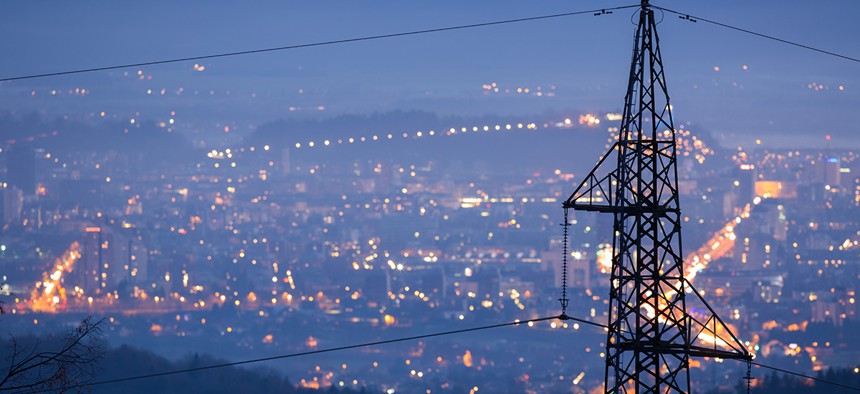DHS: Cyberattack on the Ukraine Power Grid Could Happen Here

urbans/Shutterstock.com
“This type of attack can happen in any critical infrastructure company across all sectors," a high-ranking cybersecurity official says.
A type of cyberattack that recently turned off the lights in Ukraine could bring any vital U.S. sector to its knees, cautioned a top Homeland Security Department official.
After leveraging a cribbed password, a group of unidentified hackers Dec. 23, 2015, knocked out power to 225,000 of the foreign country's customers for up to 6 hours.
"Don't be deceived that this was only an electrical sector issue,” said Ret. Brig. Gen. Gregory Touhill, DHS deputy assistant secretary for cybersecurity and communications. “This type of attack can happen in any critical infrastructure company across all sectors.”
The perpetrators used stolen credentials to remotely access power company networks, Touhill said Tuesday afternoon at the Billington Cybersecurity International Summit.
“It’s the old username and password as the front door,” he said. “They got into the administrative networks and then the administrative networks were linked in with the industrial control systems," a common technical setup in industries with computerized back office systems.
The bad guys not only caused a blackout in Ukraine; they blunted efforts to restore power at the three affected electricity firms. The victims caught on to their tactics, but only after reverting to manual operations.
"This was an actual dogfight between the electrical company operators and the hackers," Touhill said.
One employee pulled out his Android smartphone and filmed a computer screen with a cursor moving seemingly of its own accord across the display, Touhill said. The adversary had gained control of the system. But score one for the good guys -- that hacked computer was a decoy.
"The bad guy didn't know that that particular one wasn't hooked up," Touhill said. The unknowing attacker was trying in vain to flick switches on an offline system.
After the attack ended, DHS analysts in January traveled to the scenes of the crime, where they saw evidence that some power supplies “were toasted" and hackers had crippled an emergency contact center to foil first responders, Touhill said.
The telephone center could not receive calls from "the guys in the bucket trucks” that would normally descend on substations to manually regain control of power operations, he explained.
The call center shutdown demonstrated the level of consciousness and forethought of the attackers, Touhill said.
Timeline of the Dec. 23, 2015, Cyber-Induced Ukraine Blackout
- 2:30 p.m. Cyberattacks begin
- 3:30 p.m. Power loss at one electricity company
- 3:31 p.m. Power goes out at another distributor
- 4:06 p.m. The third company loses power
- 5:00 p.m. Telephone denial of service attack prevents companies and customers from reporting problems
- 6:00 p.m. Data center power cut by attackers
- Within 4 to 6 hours, all power in the affected areas was restored -- by switching to manual control
Each observed trick could have been stifled by security controls long used by some U.S. enterprises, Touhill said.
The protections he cited include "multifactor" logins that require another form of ID besides a password, as well as the separation of control system networks from administrative networks.
Touhill also recommended restricting the ability to remotely access industrial systems and testing contingency procedures, including scenarios where an organization is forced to work under unsafe operations.
"BlackEnergy,” a type of spyware Russian hackers have previously used to target energy control systems, was present on the victims' networks, but Touhill stressed, “We haven't seen any indication that shows that the BlackEnergy contributed to this particular attack.”
A March 18 analysis of the outage by the SANS Industrial Control Systems Team, a consortium of information security experts, suggests that the attackers used BlackEnergy as one component to gain a foothold in victim IT environments.
It is doubtful BlackEnergy aided in the credential theft, Touhill told Nextgov after the speech.
“The role of BlackEnergy in this is very uncertain," he said. "My teams and I haven't seen sufficient evidence for us to draw that conclusion."
NEXT STORY: FBI lawyer says encryption has a purpose






